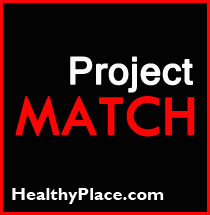John Allen of the NIAAA's Response to Stanton Peele's Article on Project MATCH in The Sciences
John Allen, an NIAAA coordinator of Project MATCH, offers an institutional response to Stanton's critiques and commentaries on Project MATCH. Among the more amusing elements: Allen's tarring Stanton with Jeff Schaler's view that the 12-step facilitation treatment is identical to AA, while Stanton in fact argues the opposite. Allen and other mainline alcohol researchers have been circling their wagons furiously to disguise that MATCH showed modern clinical treatments of alcoholism are lost at sea on the nature of the phenomenon and how to deal with it.

The Sciences, March/April, 1999, pp. 3; 46-47
Several of Stanton Peele's comments about the design features of the U.S. government-funded study known as Project MATCH were in error. For example, though MATCH excluded many subjects who were dependent on illicit drugs, it included many people diagnosed as drug abusers but not dependent. Mr. Peele also gives the impression that the MATCH subjects had unusually favorable treatment prognoses, whereas the average number of symptoms of the MATCH subjects was roughly twice that required for a diagnosis of alcohol dependence, according to generally accepted diagnostic guidelines.
Each of the three MATCH-administered treatments was associated with dramatic decreases in alcohol consumption. More strikingly, those improvements were generally well maintained, even thirty-nine months after the initial treatment. True, the MATCH subjects volunteered for the study; that is, of course, a requirement for almost all medical research on human subjects. Nevertheless, the MATCH subjects probably sought treatment for many of the same reasons as did their counterparts in community-based treatment programs—because of some external pressure from family, friends or colleagues.
Why did the MATCH investigators decide not to include a control group in the study? First, it seemed unethical to deny treatment to alcoholics seeking it. Second, it seemed unlikely that subjects who had been assigned to the no-treatment group would refrain from getting treatment outside the protocol, or that they would comply adequately with a follow-up assessment. Finally, the primary goal of MATCH was to evaluate the interaction between subjects and treatment techniques. No hypothesis had predicted a favorable patient interaction with a no-treatment condition.
Mr. Peele suggests that MATCH results have wide-ranging implications regarding such issues as the effectiveness of AA, the "medicalization" of alcoholism treatment, the natural recovery from alcohol problems and the desirability of abstinence as a treatment goal. But MATCH made no attempt to address those issues. Contrary to assumptions made by Mr. Peele, for instance, the twelve-step facilitation (TSF) treatment technique was clearly not intended to be an analogue of AA. TSF differs from AA in that the TSF sessions are individual and conducted by a trained therapist; TSF sessions adhere to a detailed treatment manual and include considerable psychometric assessment; and subjects are given homework assignments.
Project MATCH focused on comparing different kinds of verbal treatments, and in that regard, it achieved its goal. Other kinds of matching, such as varying medications or the intensities of a treatment, remain to be explored.
John Allen
National Institute on Alcohol Abuse and Alcoholism
Stanton Peele replies:
John Allen's response to my critique and interpretation of the MATCH study has a cookie-cutter quality about it, resembling other responses by MATCH authors to critics. (Mr. Allen is listed first among the MATCH research team.) That one-size-fits-all response misses by a mile what I actually said, undermining the group's scientific acuity.
Mr. Allen elaborately explains why no control group was included in Project MATCH. But I criticized the exclusion of a control group because the National Institute on Alcohol Abuse and Alcoholism (NIAAA) made so much ofthe success of the MATCH treatments. Mr. Allen criticizes my integration of MATCH results with other NIAAA data. Yet he and other NIAAA representatives illegitimately extrapolate in citing the overall effectiveness of the MATCH treatments without the control group of untreated alcoholics that would be needed to support such a claim. Such overreaching by the MATCH investigators is not surprising, because the study did not find any of the benefits, which NIAAA had bet nearly $30 million would be found, from matching treatments with patient profiles.
Mr. Allen next expounds on his idea that I claim that MATCH's twelve-step facilitation treatment was an analogue of AA. I actually made the opposite point: the well-designed and well-conducted twelve-step treatment in MATCH bears no relation to AA and twelve-step therapy as generally practiced in the United States. When Mr. Allen cites the use of a manual to train the MATCH therapists, as well as other careful quality controls, he (perhaps inadvertently) affirms my very point.
Mr. Allen alludes to the errors he says I made in describing the complex and multifaceted MATCH research and its reams of data. He presents two such "errors." The first, he says, is my claim that MATCH excluded people who abuse drugs and alcohol simultaneously. But the MATCH research team itself reported: "Nor do these findings hold for all types of substance abusers with varying or multiple substances of abuse."
The other "error" he charges is my assertion that the MATCH volunteers have a better prognosis than more typical, seriously alcoholic patients, simply because the former are socially stable, not simultaneously drug-dependent and not criminals. Much research supports my view, along with common sense. Does Mr. Allen really think that the MATCH outcomes he touts reflect the success of American treatment of alcohol dependence in general? The NIAAA survey data I detailed paint a contrary picture.
Finally, Mr. Allen proudly trumpets the success MATCH subjects had in cutting back on their drinking; thus he welcomes reductions of drinking that fall short of abstinence. But such acceptance is nowhere in evidence among alcoholism treatment programs across the United States, for which abstinence is the only legitimate outcome—and the only one regarded as worth reporting. Mr. Allen and MATCH's radical departure from conventional wisdom would be worth trumpeting, were they not afraid to contradict the prejudices that put blinders on alcoholism treatment in America.
The two AA members who wrote letters demonstrate that same doctrinaire inability to assimilate outcomes in which drinking is "merely" reduced. Their insistence on abstinence-only treatment is thus hopelessly out of touch with reality. (Mr. S.'s assertion that, according to AA, social drinkers don't need to abstain, is a non sequitur in the context of the seriously alcoholic subjects treated by MATCH.)
Most American alcoholics do not enter treatment, most who enter do not respond to it and most who successfully graduate from treatment later relapse. An American treatment policy that insists on abstinence and lauds the small minority who achieve it is a far cry from a comprehensive approach to alcohol problems. Maintained with the support of self-censoring NIAAA and MATCH personnel, that policy amounts to a cultural delusion. I am glad that the psychiatrist Douglas Cameron expresses a view of Project MATCH similar to my own. Readers should know that Mr. Cameron has successfully implemented a pluralistic public treatment program in Great Britain that avoids the American fixation on abstinence.
next: Love and Addiction - Appendix
~ all Stanton Peele articles
~ addictions library articles
~ all addictions articles
APA Reference
Staff, H.
(2008, December 27). John Allen of the NIAAA's Response to Stanton Peele's Article on Project MATCH in The Sciences, HealthyPlace. Retrieved
on 2026, March 5 from https://www.healthyplace.com/addictions/articles/john-allen-of-the-niaaas-response-to-stanton-peeles-article-on-project-match-in-the-sciences

